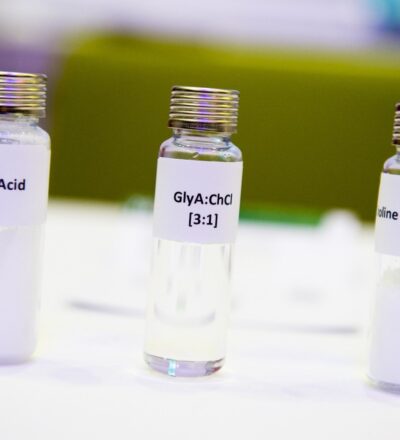In ten years, the consortium of PRIDES (Deep Eutectic Solvents in papermaking) has gained a wealth of insight into biorefinery and the possibilities for sustainable pulping. Nevertheless, the decision has now been made not to proceed with the construction of a pilot plant. Several consortium partners will, however, independently continue to work with research results. Further process optimization and expansion of their product portfolio are their goals.
The pulp industry processes wood into fibres from which paper can be made. The traditional kraft pulping process is a very effective and CO2 efficient process, as energy and chemicals are recycled. It isolates high quality fibres while using the remaining lignin as a sustainable energy source to feed the process in which pulping chemicals are recovered.
Resource efficiency
In the upcoming decades fossil-based chemicals need biobased replacements, thus putting additional pressure on natural resources. The lignocellulose pulping concept is thought in principle to hold the opportunity to assist this transformation. This requires a pulping process that yields lignin that can be easily isolated and converted into chemical building blocks. Moreover, significant energy saving during the pulping process would allow this lignin side stream to become available.
Deep Eutectic Solvents – Treasure of systemic understanding
A key strategy was seen in the application of more selective and benign solvents, in which the use of Deep Eutectic Solvents (DES) stands out. The consortium explored DES solvents for lignin isolation, studied the delignification mechanism, and designed a recovery process, but the key question remained: could it replace Kraft pulping?
A wealth of systemic insights into all aspects of pulping via biorefinery has been obtained. While the DES process produced high-quality lignin and required less water, energy savings fell short of expectations. The environmental footprint matched the large-scale kraft process, and cellulose quality resembled sulphite pulp rather than kraft standards. Balancing recovery processes against the value of DES and additional products proved challenging.
Moving forward with results
All in all, the consortium of PRIDES therefore decided not to proceed to building a pilot plant for this process. The decision not to proceed only means that this alternative process has been abandoned as a bulk process for the entire industry. Individual consortium partners do go forward as several products produced are very promising – albeit for more specialized products.
The full public summary is available on the PRIDES project page.
Acknowledgement
This project received funding from TKI E&I with the supplementary grant 'TKI-Toeslag' for Topconsortia for Knowledge and Innovation (TKI's) of the Ministry of Economic Affairs and Climate Policy.
